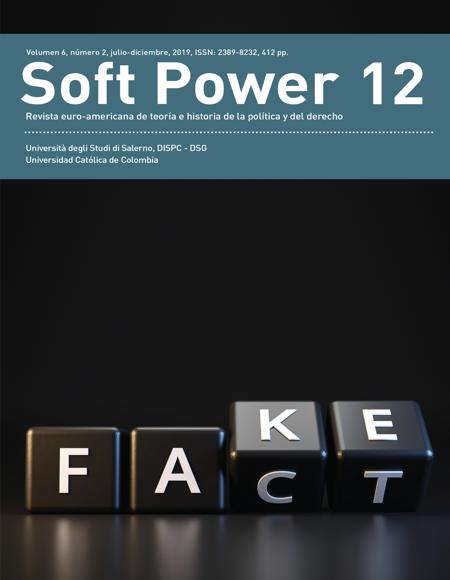Resumen
I understand post-truth as a new paradigm in politics - one that goes beyond mere political lying and spin and points to the decline of the symbolic authority of truth itself. In so far as, as Arendt claimed, politics depends on a shared acknowledgement of certain factual truths, post-truth thus represents a crisis of political life. The post-truth condition is a post-political condition. To grasp this thoroughly, we need to understand the paradoxical relationship between truth and politics, locating a problematic that goes back to the very origins of the demos in ancient Greece: the original conflict between the singular truth of the philosopher and the affairs and concerns of the polis. Here I will draw on two different approaches to this problem: Hannah Arendt’s discussion of the conflicting, and yet inextricable, relationship between the stability of truth and the contingency and plurality of political life; and Michel Foucault’s exploration of parrësia or ‘frank speech’ – a form of truth-speaking which, while often in conflict with the polis, is also necessary for any notion of ethical conduct in political life. Both approaches suggest that politics bears some essential relation to truth, even if truth often finds itself impotent in the face of mere opinion. Yet, while there is some question about the efficacy today of asserting facts against lies or ‘speaking truth to power’, I argue that there is something valuable in Foucault’s idea of truth speaking as a form of ethical (and also political) subjectivation.
Palabras clave

Citas
Arendt, H. (1972). Lying in Politics: Reflections on the Pentagon Papers, Crises of the Republic (pp.1-47). San Diego: Harcourt Brace & Co.
Ball, J. (2017). Post-Truth: How Bullshit Conquered the World. London: Biteback Publishing.
Berardi, F. (2009). The Soul at Work: From Alienation to Autonomy. Cambridge (Mass.): MIT Press.
Brown, W. (2017). Undoing the Demos: Neoliberalism’s Stealth Revolution. New York: Zone Books.
d’Ancona, M. (2017). Post-Truth: the New War on Truth and How to Flight Back. London: Ebury Press.
Foucault, M. (1982-1983). The Government of the Self and Others: Lectures at the College de France.Foucault, M. (1983-1984) The Courage of Truth: Lectures at the College de France.Basingstoke: Palgrave Macmillan.
Foucault, M. (1984). What is Enlightenment? in P. Rabinow (Ed)., The Foucault Reader (pp. 32-50). New York: Pantheon Books.
Foucault, M. (2000) The Ethics of the Concern of the Self as a Practice of Freedom,) in Ethics: Subjectivity and Truth. New York: The New Press.
Freud, S. (1922). Group Psychology and the Analysis of the Ego. London, Vienna: The International Psycho-Analytical Press.
Fuller, S. (2018). Post-Truth: Knowledge as a Power Game. London: Anthem Press.
Hyvönen A-E (2018). Careless Speech: Conceptualizing Post-Truth Politics, New Perspectives: Interdisciplinary Journal of Central and East European Politics and International Relations, 26(3), 1-37.
McIntyre, L. (2018). Post-Truth. Cambridge (Mass.): MIT Press.
Suskind, R. (2004, October 17). Faith, Certainty and the Presidency of George W. Bush. The New York Times Magazine.














